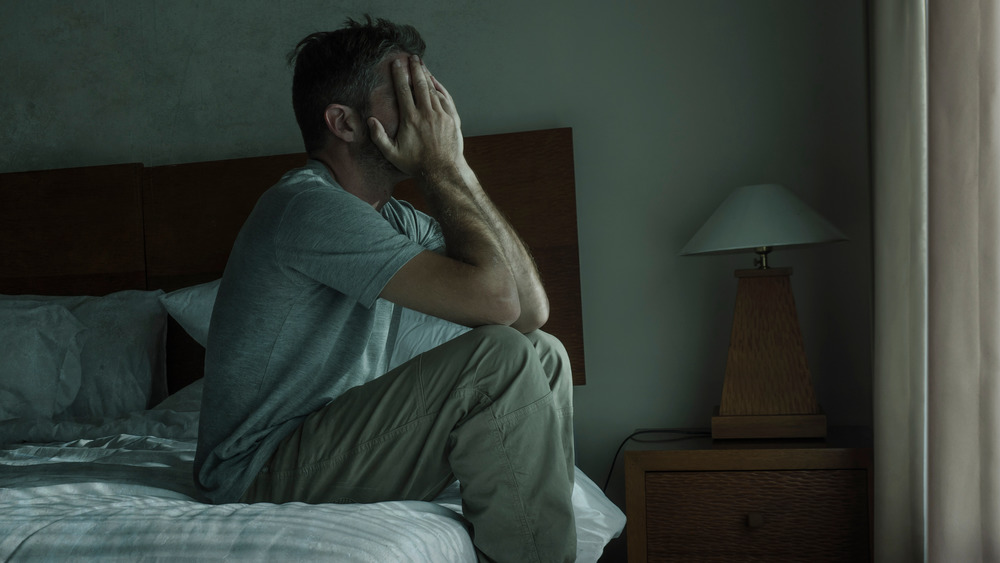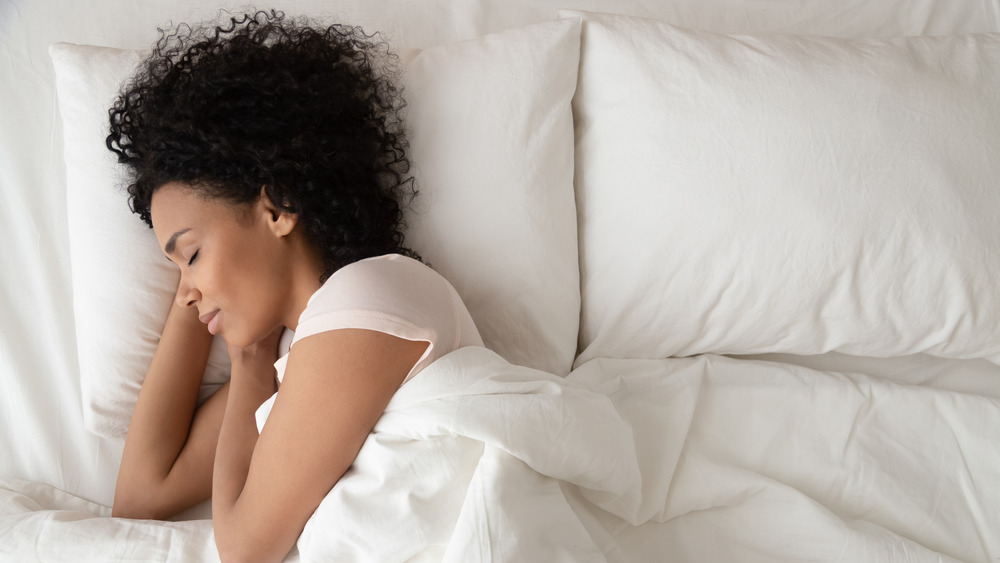What It Really Means When You Wake Up Crying
It's the middle of the night and you jolt awake to find yourself crying with no memory of why and unsure if you can get much more rest. Or you wake up in the morning only to find yourself anxious, upset, and rattled from a nightmare that left you in tears. It's a rough way to start the day — and it's as confusing as it is upsetting. Why do some nightmares leave you crying while others can be shrugged off? And what does it mean when you aren't having a nightmare but wake up crying anyway?
Waking up in tears usually means one thing: You are suffering from parasomnia. The American Sleep Association (ASA) defines parasomnia as any "undesirable physical or verbal behaviors ... during sleep." These behaviors are usually caused by "abnormal transitions between the three primary stages of being asleep and include things like sleepwalking and talking in your sleep.
But if you're waking up in the middle of a crying spell, you're probably not just talking in your sleep. It's a lot more likely that you're suffering from either nightmares of night terrors.
Nightmares vs. night terrors
Both nightmares and night terrors are considered forms of parasomnia. Nightmares are just as common in children as in adults, according to the American Academy of Sleep Medicine, but night terrors usually stop as children get older. Adults can still have them, it is just much less common. And certain conditions make it a lot more likely that they'll occur. These include emotional stress or a traumatic event, or a history of long-term anxiety, depression, or bipolar disorder (via the ASA). Night terrors are also linked to genetics, so sufferers might want to ask family members if anyone has experienced them.
Of course these triggers aren't exclusive to night terrors. Traumatic events and emotional stress can also lead to nightmares as well. It can be hard to distinguish between the two but Self explains that nightmares are often remembered and include specific imagery, while night terrors are usually focused more on a sensation of terror rather that images and are often forgotten in the morning. In either case, it's easy to see why someone might wake up in tears.
What to do about parasomnia
Nobody should wake up feeling stressed or upset. And there is, thankfully, help. The ASA suggests therapy as a means of uncovering the emotional roots of parasomnia. Genetic roots are not so easily dealt with. But knowing the cause — and knowing it's not just you — might help you get back to a good night's sleep.
If therapy is not an immediate option, there are still ways to help reduce the severity of your parasomnia. The ASA suggests reaching a state of deep sleep as quickly as possible since parasomnia happens in the transitions between sleep phases. To do this, they offer a list of good sleep hygiene practices. These include limiting (or eliminating) caffeine, setting up a reliable bed time routine, and ensuring you have a good sleep environment. This means a comfortable, dark, and somewhat cool place to sleep that is separate from where you work, relax, or watch TV.
Parasomnia affects most people at some point in their lives. But that doesn't mean you have to deal with it on a regular basis. These tips are a good starting point and might help you avoid a tear-soaked pillow in the morning. Find the routine that works for you, so you can get the good night's sleep you deserve.



